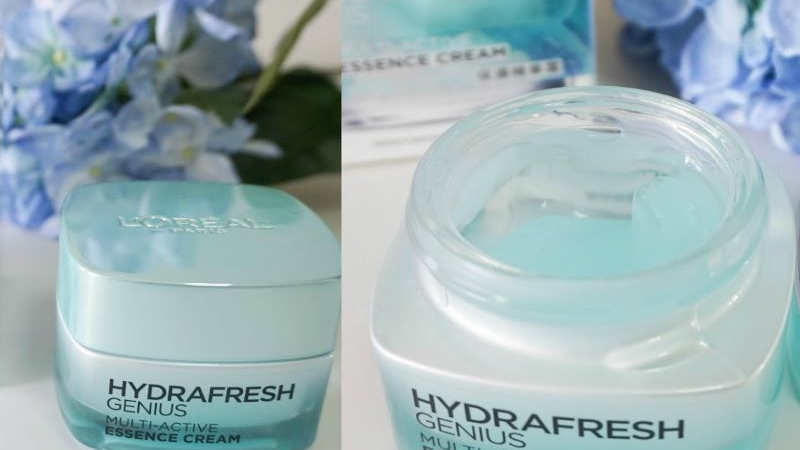GYNO-PEVARYL DEPOT VAGINAL SUPPOSITORY 150

PRODUCT NAME
GYNO-PEVARYLOVULES
GYNO-PEVARYL
Bạn đang đọc: GYNO-PEVARYL DEPOT VAGINAL SUPPOSITORY 150
DEPOT OVULES
DOSAGE FORMS AND STRENGTHS
150mg Ovules: 1 ovule contains 150.0 mg econazole nitrate
150mg Depot Ovules: 1 ovule contains 150 mg micronized econazole nitrate
Not all presentations may be available locally.
For excipients, see List of Excipients.
CLINICAL INFORMATION
Indications
GYNO-PEVARYLindicatedtreatmentvulvovaginalmycosesmycoticbalanitis .
Dosage and Administration
Dosage
Adult Females
150 mg Ovules: One ovule is inserted high into the vagina once daily at bedtime for three
consecutive days. This is best done in the reclining position. In sự kiện of relapse, or if the cultureexamination one week after treatment is positive, a second round of treatment should beundertaken .
150 mg Depot Ovules: One depot ovule is inserted high into the vagina in the morning and one in
the evening. This is best done in the reclining position .
Special Populations
Pediatrics (2 to 16 years old)
The safety and effectiveness in children has not been established .
Elderly (older than 65 years old)
Data are insufficient regarding the use of GYNO-PEVARYLin the elderly ( > 65 years old ) .
Contraindications
GYNO-PEVARYLis contraindicated in individuals who have shown hypersensitivity to any ofits ingredients .
Warnings and Precautions
For intravaginal use only. GYNO-PEVARYLis not for ophthalmic or oral use .The concurrent use of latex condoms or diaphragms with vaginal anti-infective preparations maydecrease the effectiveness of rubber contraceptive agents. Therefore products such as GYNO -PEVARYLshould not be used concurrently with a diaphragm or latex condom. Patients usingspermicidal contraceptives should consult their physician since any local vaginal treatment mayinactivate the spermicidal contraceptive .GYNO-PEVARYLshould not be used in conjunction with other internal or external treatmentof the genitalia .If marked irritation or sensitivity occurs, the treatment should be discontinued .Patients with sensitivity to imidazoles have also reported sensitivity to econazole nitrate .
Interactions
Econazole is a known inhibitor of CYP3A4 / 2C9. Due to the limited systemic availability after
vaginal application (see Pharmacokinetic Properties), clinically relevant interactions are unlikely
to occur, but have been reported with oral anticoagulants. In patients taking oral anticoagulants ,such as warfarin or acenocoumarol, caution should be exercised and the anticoagulant effectshould be monitored .
Pregnancy, Breast-feeding and Fertility
Pregnancy
Animal studies have shown reproductive toxicity (see Non-Clinical Information).
Because there is vaginal absorption, GYNO-PEVARYLshould not be used in the first trimesterof pregnancy unless the physician considers it essential to the welfare of the patient. GYNO -PEVARYLmay be used during the second and third trimester if the potential benefit to themother outweighs the possible risks to the fetus .
Breast-feeding
Following oral administration of econazole nitrate to lactating rats, econazole and / or metaboliteswere excreted in milk and were found in nursing pups. It is not known whether econazole nitrateis excreted in human milk .Caution should be exercised when using GYNO-PEVARYLif the patient is breast-feeding .
Fertility
Results of econazole animal reproduction studies showed no effects on fertility (see Non-Clinical
Information).
Effects on Ability to Drive and Use Machines
None known .
Adverse Reactions
Throughout this section, adverse reactions are presented. Adverse reactions are adverse eventsthat were considered to be reasonably associated with the use of econazole nitrate based on thecomprehensive assessment of the available adverse sự kiện information. A causal relationship witheconazole nitrate usually cannot be reliably established in individual cases. Further, becauseclinical trials are conducted under widely varying conditions, adverse reaction rates observed inthe clinical trials of a drug cannot be directly compared to rates in the clinical trials of anotherdrug and may not reflect the rates observed in clinical practice .
Clinical trial data
The safety of GYNO-PEVARYLVaginal Cream and Vaginal Ovules was evaluated in 3630patients who participated in 32 clinical trials. Adverse reactions reported for ≥ 1 % of patientstreated with either GYNO-PEVARYLVaginal Cream or Vaginal Ovules in these studies areshown in Table 1 .
Table 1. Adverse Reactions Reported by ≥1% of Patients Treated with GYNO-PEVARYL
in 32
Clinical Trials
System Organ Class
GYNO-PEVARYLAdverse Reaction( N = 3630 )
Skin and Subcutaneous Tissue Disorders
Skin burning sensationPruritusAdverse reactions that occurred in < 1 % of patients treated with either GYNO-PEVARYLVaginal Cream or Vaginal Ovules in the 32 clinical trials are listed in Table 2 .
Table 2. Adverse Reactions Reported by <1% of Patients Treated with GYNO-PEVARYL
in 32
Clinical Trials
System Organ Class
Adverse Reaction
Skin and Subcutaneous Tissue Disorders
Rash
Reproductive System and Breast Disorders
Vulvovaginal burning sensation
Postmarketing data
In addition to the adverse reactions reported during clinical studies and listed above, thefollowing adverse reactions have been reported during postmarketing experience ( Tables 3 and4 ). In each table, the frequencies are provided according to the following convention :Very common≥ 1/10Common≥ 1/100 and < 1/10Uncommon≥ 1 / 1000 and < 1/100Rare≥ 1/1000 0 and < 1/1000Very rare< 1/1000 0, including isolated reports .In Table 3, adverse reactions are presented by frequency category based on incidence in clinicaltrials or epidemiology studies, when known .
Table 3. Adverse Reactions Identified During Post-marketing Experience with GYNO-PEVARYL
by
Frequency Category Estimated from Clinical Trials or Epidemiologic Studies
System Organ Class
Frequency category
Preferred Term
Immune System Disorders
Not known
Hypersensitivity
Skin and Subcutaneous Tissue Disorders
Rare
Erythema
Not known
Angioedema, Urticaria, Contact dermatitis, Skin exfoliation
General Disorders and Administration Site
Conditions
Not known
Applicationsitepain ,Applicationsiteirritation ,Application site swelling
Overdose
Symptoms and signs
Adverse events associated with overdose or misuse of GYNO-PEVARYLare expected to be
consistent with adverse drug reactions already listed in Adverse Reactions.
Treatment
GYNO-PEVARYLis for topical application only. In the sự kiện of accidental ingestion, treatsymptomatically. If the product is accidentally applied to the eyes, wash with clean water orsaline and seek medical attention if symptoms persist .
PHARMACOLOGICAL PROPERTIES
Pharmacodynamic Properties
Pharmacotherapeuticgroup :Antiinfectivesantiseptics ,excl .combinationswithcorticosteroids, imidazole derivatives, ATC code : G01A F05 .
Mechanism of action
Econazole nitrate acts by damaging fungal cell membranes, resulting in increased permeability .Sub-cellular membranes in the cytoplasm are damaged. The site of action is most probably theunsaturated fatty acid acyl moiety of membrane phospholipids .
Pharmacodynamic effects
Microbiology
A broad spectrum of antimycotic activity has been demonstrated against dermatophytes, yeastsand molds. A clinically relevant action against gram-positive bacteria has also been found .
Pharmacokinetic Properties
Absorption
Systemicabsorptioneconazoleextremelyaftervaginalapplication .Meanpeakplasma / serum concentrations of econazole and / or its metabolites were observed 1 to 2 days afterdose administration and were 65 ng / mL for the 150 mg Ovule. The percentage of appliedeconazole dose absorbed was found to be approximately 5 % for the 150 mg Ovule .
Distribution
Econazole and / or its metabolites in the systemic circulation are extensively bound ( > 98 % ) toserum proteins .
Metabolism
Econazole is extensively metabolized by oxidation, deamination and / or O-dealkylation .
Excretion
Econazole metabolites are eliminated in urine and feces .
NON-CLINICAL INFORMATION
Preclinical effects were observed only at exposures considered sufficiently in excess of themaximum human exposure, indicating little relevance to clinical use .Acute toxicity studies indicate a wide margin of safety with rodent oral LD50 values rangingfrom ˃ 160 – 463 mg / kg. In repeat dose toxicity studies, at high doses ( 50 mg / kg / day ) the liver wasidentified as a target organ with minimal toxicity and full recovery .Neither significant topical toxicity, phototoxicity, local dermal irritation, vaginal irritation norsensitization was noted. Only mild ocular irritation was noted with a cream formulation .
Carcinogenicity and Mutagenecity
No studies on the carcinogenic potential have been conducted due to the short course ofproposed clinical therapy and the absence of any significant potential of econazole to begenotoxic in a way that could lead to initiation or promotion of tumor formation .In various test systems either no or some limited gene-toxicity effects ( structural chromosomaldeviations ) have been shown. Based on an overall assessment of these data and the indicatedroute of administration including the resulting minimal systemic exposure to econazole, there islittle relevance for clinical use .
Reproductive Toxicology
Results of econazole reproduction studies showed no effects on teratogenicity .
Fertility
Results of econazole reproduction studies showed no effects on fertility .
Pregnancy
Low neonatal survival and fetal toxicity was associated only with maternal toxicity. In animalstudies, econazole nitrate has shown no teratogenic effects but was fetotoxic in rodents atmaternal subcutaneous doses of 20 mg / kg / day and at maternal oral doses of 10 mg / kg / day. Thesignificance of this in humans is unknown .
PHARMACEUTICAL INFORMATION
List of Excipients
150 mg Ovules: hard fat
150
mg
Depot
Ovules:
Polygel371 ,colloidalanhydroussilica ,hardfat ,stearylheptanoate / caprylate
Incompatibilities
None known .
Shelf Life
See “ expiry date ” ( month / year ) printed on outer pack .
Storage Conditions
150 mg Ovules: Do not store above 30°C
150 mg Depot Ovules: Do not store above 30°C
Keep out of reach of children .
Nature and Contents of Container
150 mg Ovules: blister packs (molded) of 3’s
150 mg Depot Ovules: blister packs (molded) of 2’s
Instructions for Use and Handling
Not applicable
BATCH RELEASER
Lusomedicamenta – Sociedade Tecnica Farmaceutica, S.A.Estrada Consiglieri Pedroso, 69 – BQueluz de Baixo2730 – 055 Barcarena, PortugalXian-Janssen Pharmaceutical LtdNo. 34, North Wanshou Road, 710043Xian, Shaanxi Province, Nước Trung Hoa
PRODUCT REGISTRANT
Johnson và Johnson Pte Ltd2 Science Park Drive# 07-13, Ascent
Singapore, Science Park 1
Xem thêm: Video thịnh hành trên TikTok là gì
Nước Singapore 118222
DATE OF REVISION OF TEXT
28 August 2017 ( CCDS 17 March năm trước )
Source: https://trangdahieuqua.com
Category: Làm đẹp


